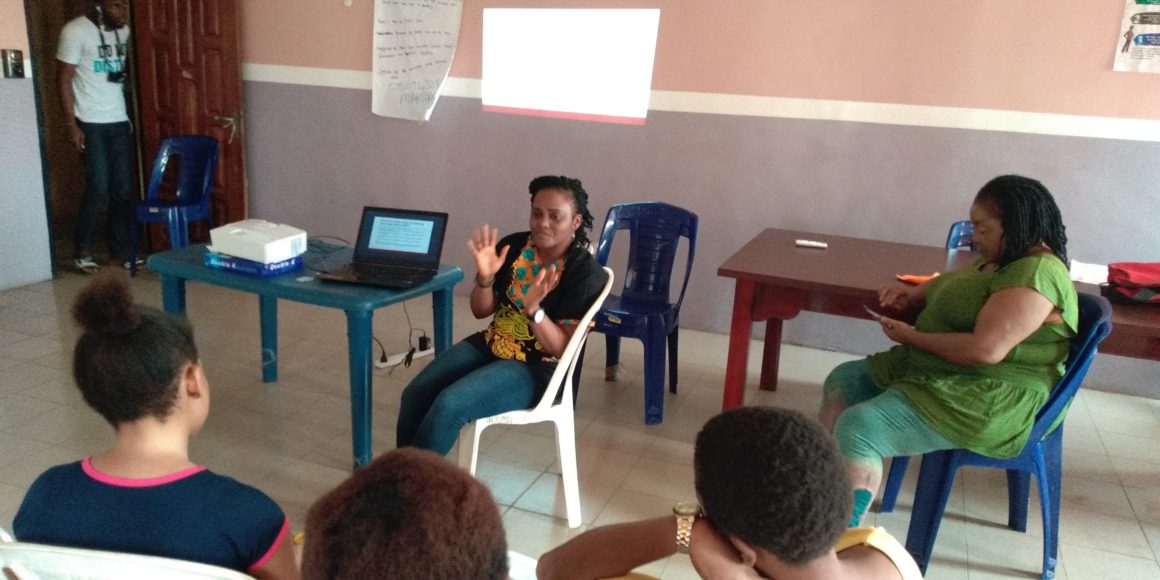Elizabeth Shoyemi has over ten years of experience in the nonprofit health sector addressing the sexual reproductive health and rights needs of the marginalized and vulnerable populations. She works with the Population Council in Nigeria as the Program Manager. Elizabeth provides technical assistance in the implementation of operations research and community-based activities on HIV and AIDS. She also manages a Community-based Health and Research Centre (CHRC) which provides comprehensive HIV and STI prevention and treatment services to key populations including sex workers, men who have sex with men, people who inject drugs, adolescents, young people, as well as people with disabilities. Over the years, she has served and volunteered in various capacities promoting HIV prevention and treatment in the south west region of Nigeria.
What led you to pursue a career in health and what tools/resources have been vital to your career advancement?
My work in sexual and reproductive health stemmed from my own struggles as a growing girl child. As a secondary school student and a teenager experiencing puberty, I was faced with dealing with the changes taking place in my body and being surrounded by peers who were not informed. We learned by sharing our experiences, based on beliefs and perceived societal expectations on what we should know and how we should react.
This led me to join a sexual and reproductive health club called “Peer Health Education” where I was taught the right information about growing up, skills and knowledge needed to overcome the challenges. We also had professionals provide us with guidance on shaping our career goals. I realized I was fast becoming a changed and knowledgeable person, becoming a source of information and a mentor to my peers.
Many adolescents and young people are living without knowing what the future holds, some experience early sexual debut, unplanned pregnancy, unsafe abortion, substance misuse, sexually transmitted infections including HIV, many lack inter-personal skills to live a well-deserved adolescent life and lack direction on how to achieve their ambitions in life. Others commit suicide or die due to lack of information or misinformation and are unable to access the health services they need.
My experience as an adolescent coupled with my early work experience in sexual and reproductive health motivated me to build a career in global health, advocating for improved sexual and reproductive health and rights of every individual.
What are you most proud of?
Influencing the policy and strategic plans for the inclusion and implementation of HIV programs for the key populations in Nigeria. The achievements made so far in the reduction of HIV spread in addition to other HIV prevention interventions are milestones to be proud of. Our research at Population Council has focused on demonstrating the use of Pre-exposure Prophylaxis (PrEP) and HIV self-test amongst key populations. We are also recording increasing rates of viral suppression amongst our clients at the CHRC. I am proud of seeing key populations, particularly the adolescents and young ones, growing to become responsible adults whilst building their career at the same time.
What do you wish you had done differently?
As a working mum, I wish I had completed my post graduate studies earlier. Going to school while being pregnant and nursing a baby coupled with a busy work schedule was tough. These achievements wouldn’t have been possible without the support of my family, colleagues, employer and the school system. I wish I learned and understood an additional international language like French, Spanish etc. In the course of my career, as a global health advocate, it is preferable to understand an additional international language. I like being in the preferable options during a selection process of this kind, hence I am working towards achieving this dream.
What are some of the biggest challenges you have faced? How did you overcome them? What are some of the lessons learnt?
Some of my biggest challenges in my professional career is having to buy someone into my idea especially when forming a new collaboration. Another challenge is having to deal with difficult colleagues and partners. I have learned to diplomatically deal with situations to achieve a win-win situation. These experiences and professional trainings in the course of my work have sharpened my interpersonal skills in building relationships, networking, conflict resolution and, being assertive amongst others.
What are your views on mentorship and how, if applicable, has it played a role in your career advancement?
Mentorship for me is a two-way learning strategy where the mentee is provided with guidance, encouragement and support to achieve both professional and personal goals while the mentor’s experience, knowledge and skills are strengthened during the mentorship process.
Being a mentor has increased my scope of knowledge in some areas which ordinarily I may not have experienced. It has also improved my leadership and communication skills; I have to set a good example and be the type of leader that my mentee wants to see.
The sense of fulfilment I get seeing the lives I have impacted drives me to do more in my career. I am a leader today because of the mentorship I have received from various mentors and opportunities offered me in my career growth. I am a better person professionally and personally because of the benefits of a mentorship opportunity.
What are some of the opportunities you see for women in health on the African continent?
Women and girls are influential agents for change, they are in control of their destinies if given the opportunity to develop self-confidence and self-worth. It is good to note that the African continent is beginning to attest to this saying of “train a woman; train a generation”, because of the outweighing benefits attached to it. In the health sector and generally, women who are educated are taking up more roles in influencing policies, making decisions, implementing these decisions in their daily lives and producing better outcomes. Some of these include the voluntary access to family planning services, pregnancy care and safe delivery methods like caesarian sections or vaginal birth amongst others. Some scholarships for self-development are targeted at women only, increasing opportunities, for entrepreneurial skills and many more, are opened for women to seize the opportunities. One would also notice that some applications specifically state that “female candidates are strongly encouraged to apply”. When women in Africa are continually given the opportunities to develop, speak-up and influence lives, the benefits will produce a ripple effect in addressing the needs of the African continent.
What advice do you have for other women in health?
The health sector is a wide space that requires several actors to play active role in its growth and development. We are not there yet until we all contribute our quota to the achievement of this growth and development goals. We should get involved in addressing health and developmental issues because it is in the process that we find opportunities to actualize our dreams, develop ourselves and create lasting impact.


Leave a Reply